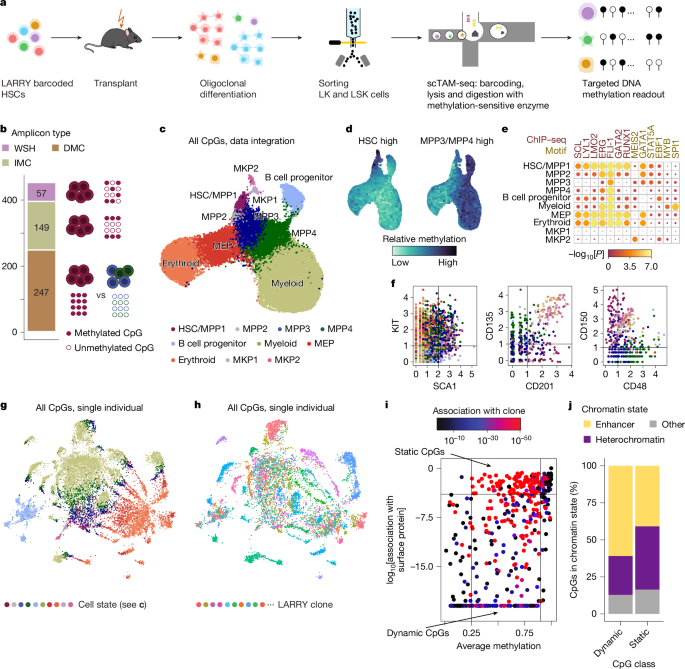
"Despite the utility of traditional lineage tracing techniques, there's a pressing need for methods that utilize endogenous markers instead of complex genetic engineering."
"Lineage tracing in haematopoiesis reveals age-related clonal changes, indicating a significant reduction in clonal diversity as organisms age."
"Spontaneous mitochondrial DNA mutations present a potentially informative method for assessing cellular lineages, although their efficacy in phylogeny reconstruction remains uncertain."
"Current methodologies in DNA methylation analysis face challenges due to data sparsity and the masking of clone-associated differences by differentiation-related epigenetic changes."
For over a century, lineage tracing has been crucial in developmental biology. Recent advancements, particularly genetic barcoding with single-cell RNA sequencing, have progressed the field but are limited by complex engineering needs. There’s a desire for simpler methods using endogenous markers like somatic mutations for parallel tracing of stem cell clones, particularly relevant in contexts like haematopoiesis. Mitochondrial DNA mutations could serve this purpose, yet their role in reconstructing cellular phylogenies requires further clarification. Complications with DNA methylation data, such as sparsity and differentiation changes, hinder clonal analysis, indicating an urgent need for new strategies.
#lineage-tracing #stem-cell-research #mitochondrial-dna #dna-methylation #aging-and-clonal-diversity
Read at Nature
Unable to calculate read time
Collection
[
|
...
]